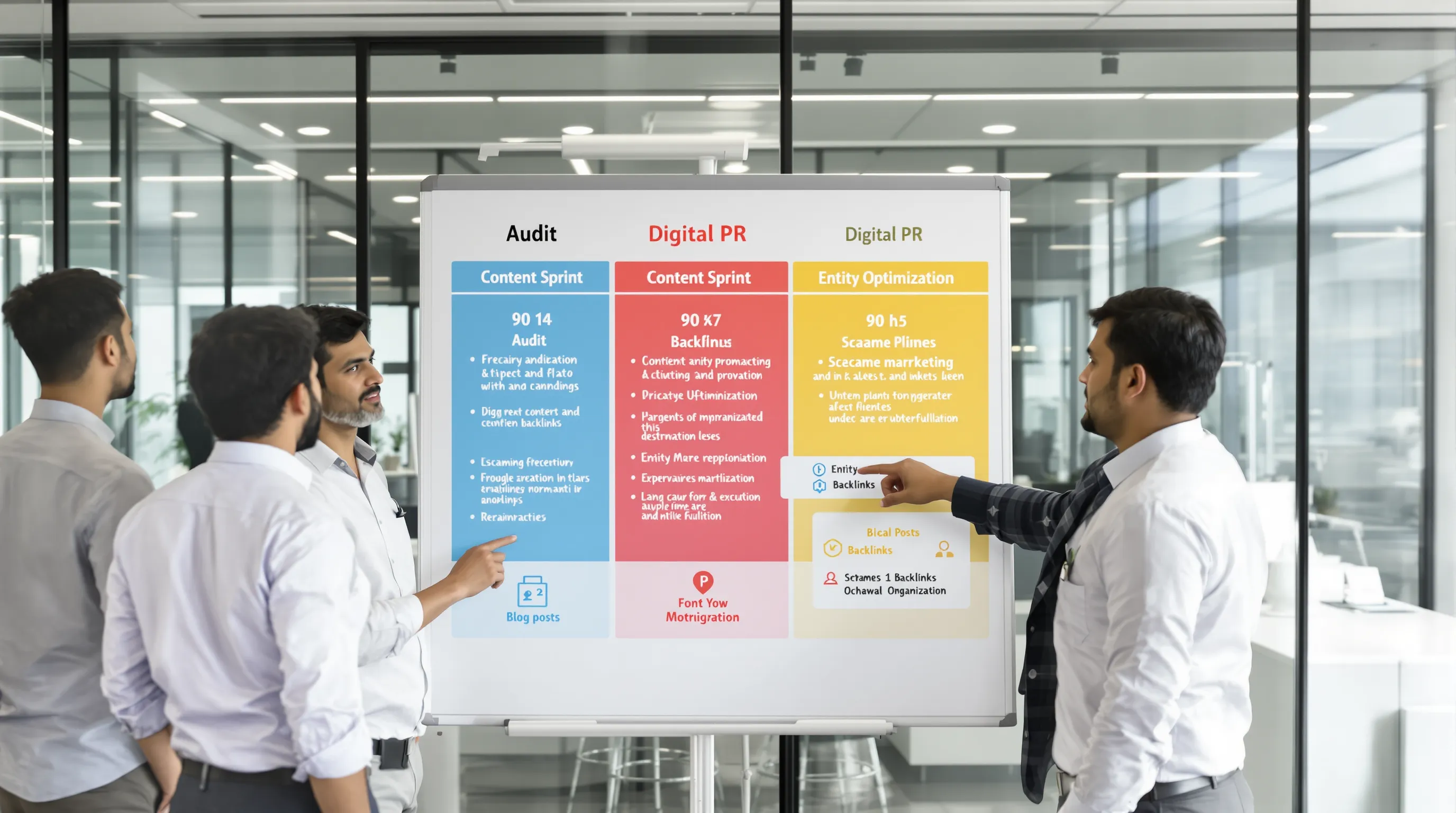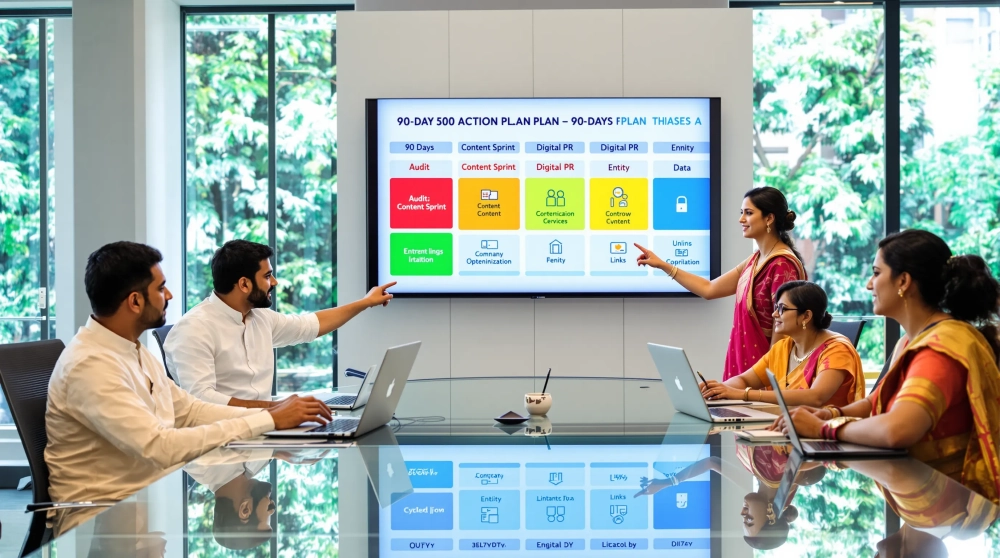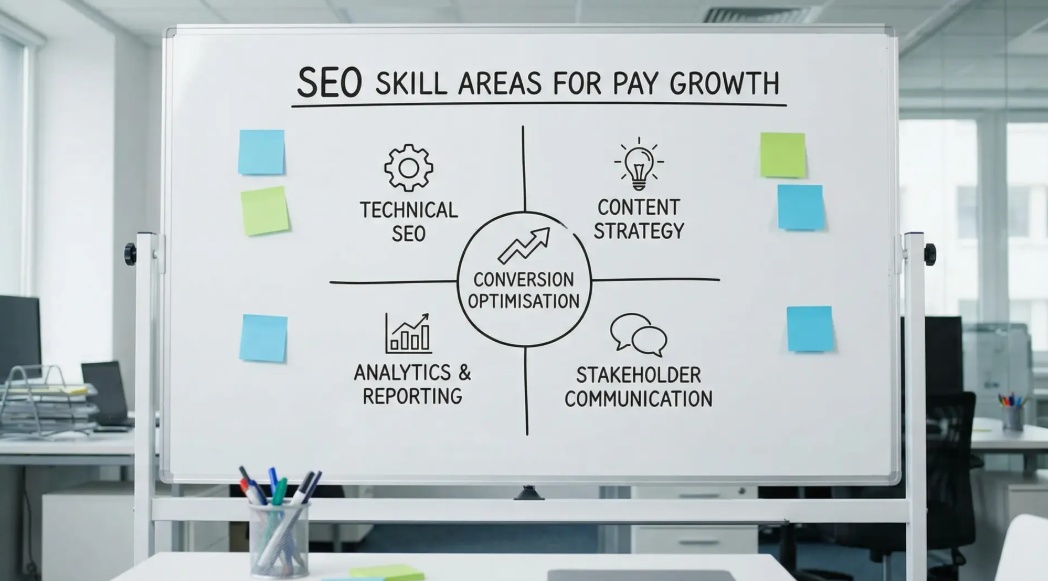Google’s search algorithms keep evolving, but one thing has stayed consistent since the 2018 Medic update: brands that demonstrate real-world expertise, experience, authority and trust (E-E-A-T) outrank those that don’t. For Indian companies competing in crowded SERPs—whether you sell Ayurvedic retreats or electric scooters—the quickest route to visible, compounding traffic is topical authority. This guide breaks down a 90-day action plan any marketing team can follow to earn that authority and turn Google’s quality signals into revenue.
Why E-E-A-T Matters More in India in 2025
- Explosive online growth: India will add an estimated 300 million new internet users by 2027 (Statista, 2024). More search demand means fiercer competition.
- Multilingual search: Hindi and “Bharat” language queries are surging, and Google is increasingly surfacing vernacular content. Your authority must extend across languages.
- YMYL sensitivity: Finance, health, and education queries—huge sectors in India—fall under Google’s “Your Money or Your Life” category, where E-E-A-T scrutiny is strictest.
Failing to show real authority risks visibility, ad costs, and ultimately trust. Succeed, and you’ll enjoy ranking longevity that paid ads can’t buy.

E-E-A-T vs. Topical Authority—A Quick Refresher
• Expertise = demonstrable knowledge or skill.
• Experience = first-hand or life experience on the subject.
• Authority = recognition from other experts and reputable sources.
• Trust = the foundation; without it, the other signals don’t matter.
Topical authority is the outcome of consistently signalling all four elements across an entire topic cluster. Think of E-E-A-T as the ingredients and topical authority as the finished dish.
The 90-Day Authority Blueprint
Phase 1 – Weeks 1-2: Audit & Opportunity Mapping
- Entity Audit
- Run a brand Knowledge Graph check with Kalicube Pro or use the Google NLP API.
- List missing or inconsistent entities (founder, product lines, awards, ISO certifications).
- Content Gap Analysis
- Export all ranking keywords from Google Search Console.
- Map against competitor topical clusters using a tool like Semrush Topic Research.
- Trust Signals Review
- Identify absent trust markers (author bios, review snippets, privacy policy, clear customer support details).
Deliverable: a prioritized sheet of content gaps and E-E-A-T deficiencies that will feed the next eight weeks.
Phase 2 – Weeks 3-6: Content Sprint & SME Collaboration
- Build Core Pillars (Week 3)
- Choose one high-value cluster. Example: “Ayurvedic weight-loss programs.”
- Publish a 2,500-word ultimate guide with first-party data, authored by a certified Ayurvedic doctor.
- Create Supportive Spokes (Weeks 4-5)
- Produce 8-10 sub-topics answering specific intent: “Ayurvedic diet plan for PCOS,” “Tripahala dosage side effects,” etc.
- Interlink every spoke with the pillar and add FAQPage schema.
- Demonstrate Experience (Week 6)
- Integrate original photos, short expert quotes, and if possible lab reports or testimonials.
Phase 3 – Weeks 7-10: Digital PR & Link Earning
- Identify Authoritative Indian Publications
- Focus on industry niche sites (e.g., PharmaBiz for healthcare) plus mainstream outlets like Economic Times Brand Equity.
- Craft Data-Led Pitches
- Offer exclusive stats from the pillar guide; Indian journalists crave local data.
- Leverage Regional Languages
- Repurpose the core findings into Tamil or Hindi op-eds to tap vernacular news portals.
Target: 20+ contextual backlinks ≥ DR 50, including at least 2 government/edu citations where possible.
Phase 4 – Weeks 11-12: Entity Optimisation & Review
- Structured Data Deployment
- Add Organization, Article, and Person schema with
sameAslinks to social profiles.
- Add Organization, Article, and Person schema with
- Wikidata & Crunchbase Updates
- Submit accurate brand and founder entries; these feed Google’s Knowledge Graph.
- Performance Audit
- Compare new vs. baseline metrics (see table below).
Recommended Metrics to Track
| Metric | Baseline (Day 0) | Day 90 Target | Tool |
|---|---|---|---|
| Topical keywords in top 20 | 180 | 450 | Semrush |
| Avg. E-E-A-T page score (in-house rubric) | 45 / 100 | 75 / 100 | Manual |
| Monthly organic clicks | 12,000 | 25,000 | Google Search Console |
| Referring domains | 210 | 260 | Ahrefs |
| Brand Knowledge Panel present? | No | Yes | Google SERP |
Indian-Specific Tactics That Move the Needle
- Author Bios with Govt. Accreditation Numbers
Medical Council of India (MCI) or FSSAI numbers instantly boost credibility for YMYL. - Regional Social Proof
Feature awards like FICCI, IAMAI or state MSME accolades; Google’s raters recognise these. - LocalLink Building
Hyper-local citations (Madras Chamber of Commerce, TiE Chennai) help if you target metro keywords such as “digital marketing agency in Chennai.”
Mini Case Insight: From 26 to 520+ Keywords in 4 Months
Our earlier project with Nattika Beach Ayurveda Resort followed a similar cadence: deep audit, expert-authored content, regional PR, entity work. Result? 20× keyword growth and a Knowledge Panel (see full case study). The same playbook works regardless of niche when executed systematically.

Common Pitfalls to Avoid
- AI-only drafts without human vetting: Our tests in the ChatGPT & SEO experiment showed pure AI copy often loses ranking.
- Ignoring author reputation: Ghostwritten articles signed “Admin” won’t cut it in YMYL.
- One-off link blasts: Authority fades if topical coverage isn’t simultaneously broadened.
Frequently Asked Questions
Can small Indian startups achieve topical authority in 90 days? Absolutely, provided you narrow focus to a micro-niche, involve true subject experts, and execute content + PR sprints aggressively.
Do I need a Wikipedia page for E-E-A-T? Helpful but not mandatory. Wikidata and consistent entity schema often suffice to trigger a Knowledge Panel.
How many backlinks are enough? Quality outperforms quantity. Ten contextually relevant DR 70 links can outweigh 100 generic directory links.
Should I publish in multiple Indian languages? If your audience searches in those languages—yes. Even one high-quality Hindi translation can secure Rich Results for vernacular queries.
Ready to Fast-Track Your Authority?
Building genuine expertise signals is labour-intensive—but you don’t have to tackle it alone. Gilead Digital’s in-house SEO strategists, content journalists and PR partners have replicated this 90-day framework for resorts, EV startups, and SaaS providers alike.
Call ✆ 9003116482 or schedule a free strategy session at https://www.gileaddigital.in to see how quickly we can turn your brand into Google’s go-to resource.








